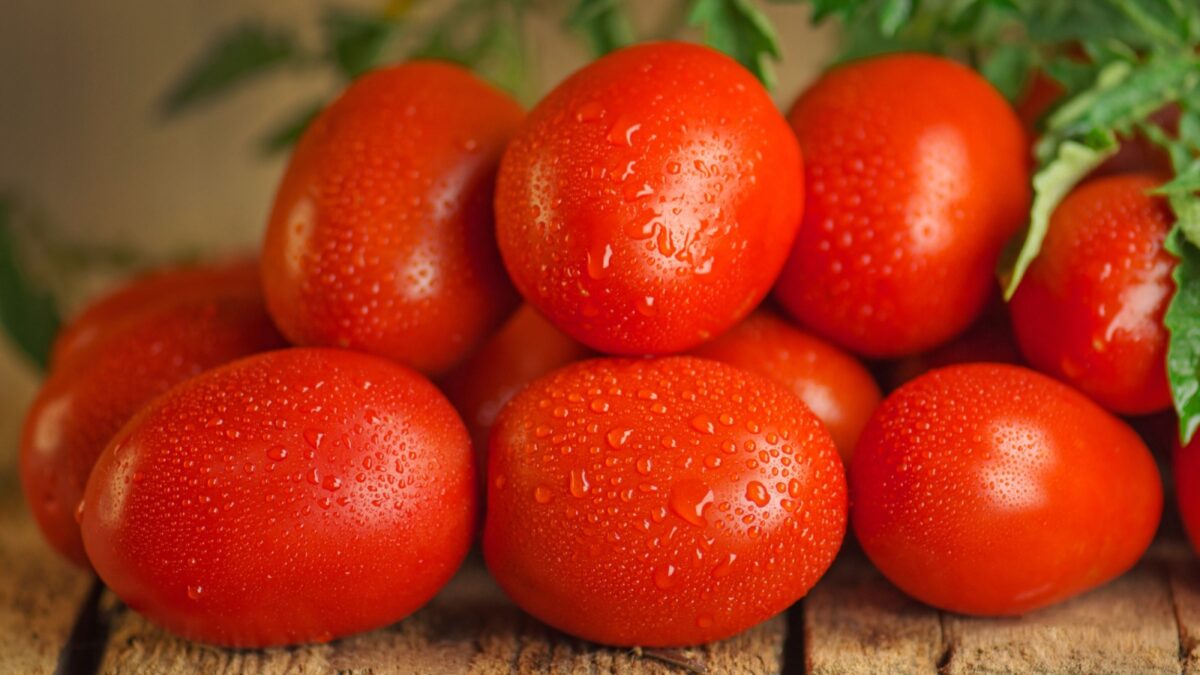Planting a kitchen garden can be the perfect way to eat more wholesome vegetables and fruits. But it’s not just vegetables that you need, as any kitchen garden would not be complete without a well-developed aromatic bed of herbs.
Plant a Kitchen Garden Close to the House

Make the most out of your garden plot and your time by choosing the right crops for your kitchen garden and planting them close to the doorway of your house. It will be easy for you to step out and cut a few herbs, grab a couple of leaves of lettuce for a salad, or pick some flowers to decorate the table.
The key to creating a kitchen garden is to locate the garden near your house so that you walk past it multiple times a day. This will encourage you to snip a few herbs, pick a bouquet of flowers, or grab some lettuce or berries for a salad. It’s handy to have it near your walking path because you will likely pull a few weeds on each trip, too.
Traditionally, kitchen gardens, with their structured, ornamental layout, were created using herbs, fruits, vegetables, and flowers, and would have been separated from the rest of the garden. A more modern version could be a garden of any size that is designed and built with the idea of feeding the family with fresh, home-grown vegetables.
The bigger the garden, the more to harvest
If you are looking to become self-sustaining and vegetable-sufficient, then you will need a fair amount of space for your kitchen garden to provide for all your family’s needs. But if you only desire to supplement your family’s fresh fruits and vegetables your kitchen garden can be small.
If you convert all your land into vegetable production, including some as a traditional vegetable patch, raised beds, and greenhouses, you can expect to produce a lot of vegetables.
Of course, using all of your land as a garden will not be everyone’s aim, and planting a large garden might not suit your family, especially if you have a young family.
The time you have available, not only for planting and taking care of a garden but also for using and preserving the produce, will be important.
Before you plant, consider different types of long-term storage to ensure that you can preserve enough of your harvest to meet your needs, even throughout the winter. Are you planning to can your vegetables or freeze them? Or will you use a dehydrator?
Less Time Required for a Kitchen Garden
If you stick to using your kitchen garden to produce the main ingredients for the kitchen, your produce will tend to be stored in a cool, dry shed. These crops need little work once they are harvested and make life a little easier in the kitchen.
If you are short on space, but you want maximum productivity to feed you through the winter, you may want to create an easy vegetable garden. This type of garden gives you a lot of vegetables for the space they take up and are not too demanding.
Although these crops are great for producing quantity, they do tend to transfer your attention from the garden to the kitchen because you will need to preserve the abundance.
Storing Veg From Your Kitchen Garden

How do you store your harvest? Other than dry storage, you could also look at growing products that you could use to make preserves, such as jams and chutneys. But to be honest, no vegetable garden could provide you with fresh vegetables without the use of a freezer.
And when it comes to freezing vegetables, it’s not just a case of picking your crops and throwing them in the nearest freezer. There is a process. Freezing your vegetables involves:
- picking
- preparing
- blanching
- cooling
- and then freezing
Although a lot more work, you could also look at making soups and sauces to freeze. They are so handy to have over the winter!
Keep picking all year
Not all your winter vegetables and herbs will have to come from the freezer. There are quite a few kitchen garden vegetables that will feed you all the way through the cold spell. In addition, if you have a greenhouse, it is quite surprising what you will be able to pick, no matter how cold.
Here are some questions for you:
- How big will you make your kitchen garden?
- Do you have a sunny spot next to your door?
- Will you plant a kitchen garden to mostly feed your family now?
- Or do you want to be able to store and preserve enough fresh-grown fruits and vegetables to feed your family year-round?



How To Grow Dill And How To Save It For Winter
Sunday 16th of January 2022
[…] you’re not already growing your own dill, it can be a great addition to your kitchen garden. Let’s take a look at how to do this and get the best […]
Are Chive Flowers Edible? 10 Clever Ways To Use Chive Blooms
Wednesday 29th of September 2021
[…] can be grown outdoors, in your kitchen garden, or indoors in a pot. They are perennial plants, which means that once you get them growing, they […]
Stunning Perennials That Bloom All Summer
Tuesday 16th of June 2020
[…] foliage. The leaves of the White Trillium are also edible, so they make a great addition to your kitchen garden as well as providing you with months of […]
Katie's Krops - A School Assignment Turned Into Feeding The Hungry - Grand Ascent Online Women's Magazine
Thursday 5th of September 2019
[…] Learning to plant a garden is an amazing skill they can use later. From choosing where to plant, which crops would do best in their space, and how to care for them, gardening can teach young students to be responsible. It’ll also help them fall in love with real food they grow from scratch. […]
Kitchen Herb Garden Ideas You'll Love
Wednesday 24th of April 2019
[…] Package of 500 Seeds, Lovage Herb (Levisticum officinale) Non-GMO Seeds by Seed Needs The best kitchen herbs will be different for all of us, depending on our cooking style. I come from Romania and we use a lot of dill, celery, parsley and lovage in our cooking. So you’ll find lots of these herbs in my kitchen garden. […]